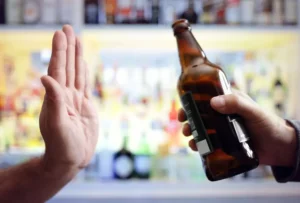
The signs of alcohol addiction can be very subtle, at least at first. You might find that you’re drinking more regularly and reaching for alcohol in order to relieve stress or ‘unwind’ after a busy day at work. ” Environmental factors include the acceptance of alcoholism in the media, the advertising and marketing of alcohol, social influences, and the availability of alcohol. To avoid developing alcoholism, drink responsibly or avoid alcohol entirely. Understanding the risks of developing AUD can also help you avoid it. Scientists have suggested that alcohol dependence might be related to approximately 51 genes in different chromosome regions.
Alcohol and the Brain: In the Long Run

Binge drinking equates to roughly five drinks for men and four for women within two how do people become alcoholics hours. However, these numbers can vary depending on your alcohol tolerance and other biological responses. The good news is they’re more likely to seek treatment than those in other groups at 66%.
- This contributes to increased tolerance and the individual needs to drink more to produce the same effect.
- ” Environmental factors include the acceptance of alcoholism in the media, the advertising and marketing of alcohol, social influences, and the availability of alcohol.
- They may have powerful mood swings that seem to change their personality.
- Mostalcoholics will never be capable of drinking in moderation, and abstinence isthe only recommended philosophy of use for people with alcoholic histories.
- The chronic severe subtype is the smallest but most severe of all the categories of alcoholism.
Drinking to Cope with Stress

They can discuss co-occurring mental illnesses such as anxiety and depression. They can seek help from peer support groups and mental health professionals as well. Getting help for alcoholism at The Recovery Village Columbus can greatly improve the chances of overcoming alcohol addiction. Contact a Recovery Advocate today to take the first step toward living an alcohol-free life. Stress can play a role in heavy alcohol use as people may drink to escape the pressures of daily life or seek relief from stressors. A moderate drinker might pair a glass of wine with a meal, while a regular drinker uses alcohol to feel good in general.

Lifestyle Quizzes
- Alcoholism doesn’t only take its toll on the alcoholic — it affects everyone around him or her, especially family and friends.
- People may use alcohol excessively in response to frequentor significant emotional disturbances or stresses.
- Ultimately, people become alcoholics because of a process known as ‘positive reinforcement’.
- Research also shows that men are more likely than women to become alcoholics.
- Many alcoholics develop a condition called Wernicke-Korsakoff syndrome, which is caused by a deficiency of thiamine (a B vitamin).
By this stage, their drinking is taking an obvious physical toll as well. They may appear red in the face or look bloated and generally unwell. The alcoholic probably isn’t sleeping or eating well at this point and may not be keeping up with personal hygiene.
Although they use alcohol in an unhealthy way, people who suffer from alcohol abuse do not necessarily develop a physical dependence upon alcohol. Mild is classified as 2 to 3 symptoms, moderate is classified as 4 to 5 symptoms, and severe is classified as 6 or more symptoms, according to the DSM-5. Identifying problems with alcohol early can help prevent dependence and addiction. Medical treatment may be necessary to detoxify the body of alcohol and to obtain a fresh alcohol rehab start.
Find Help for an Alcoholic Loved One Today
Functional alcoholics consume alcohol daily or at least several times per week. A study by scientists at the NIAAA, part of the National Institutes of Health (NIH), analyzed 1,484 survey respondents who met specific diagnostic criteria for alcohol addiction. The study included people both in treatment and not seeking treatment. The pathway to healing and recovery is often a process that occurs over many years.

Alcohol addiction is characterized by a physical and psychological need to drink. At this point, you have an attachment to alcohol that has taken over your regular routine. You’re aware of the adverse effects, but no longer have control over your alcohol consumption. Frequent, uncontrolled alcohol abuse eventually leads to problem drinking. While any form of alcohol abuse is problematic, the term “problem drinker” refers to someone who starts experiencing the impacts of their habit. You may need to seek treatment at an inpatient facility if your addiction to alcohol is severe.